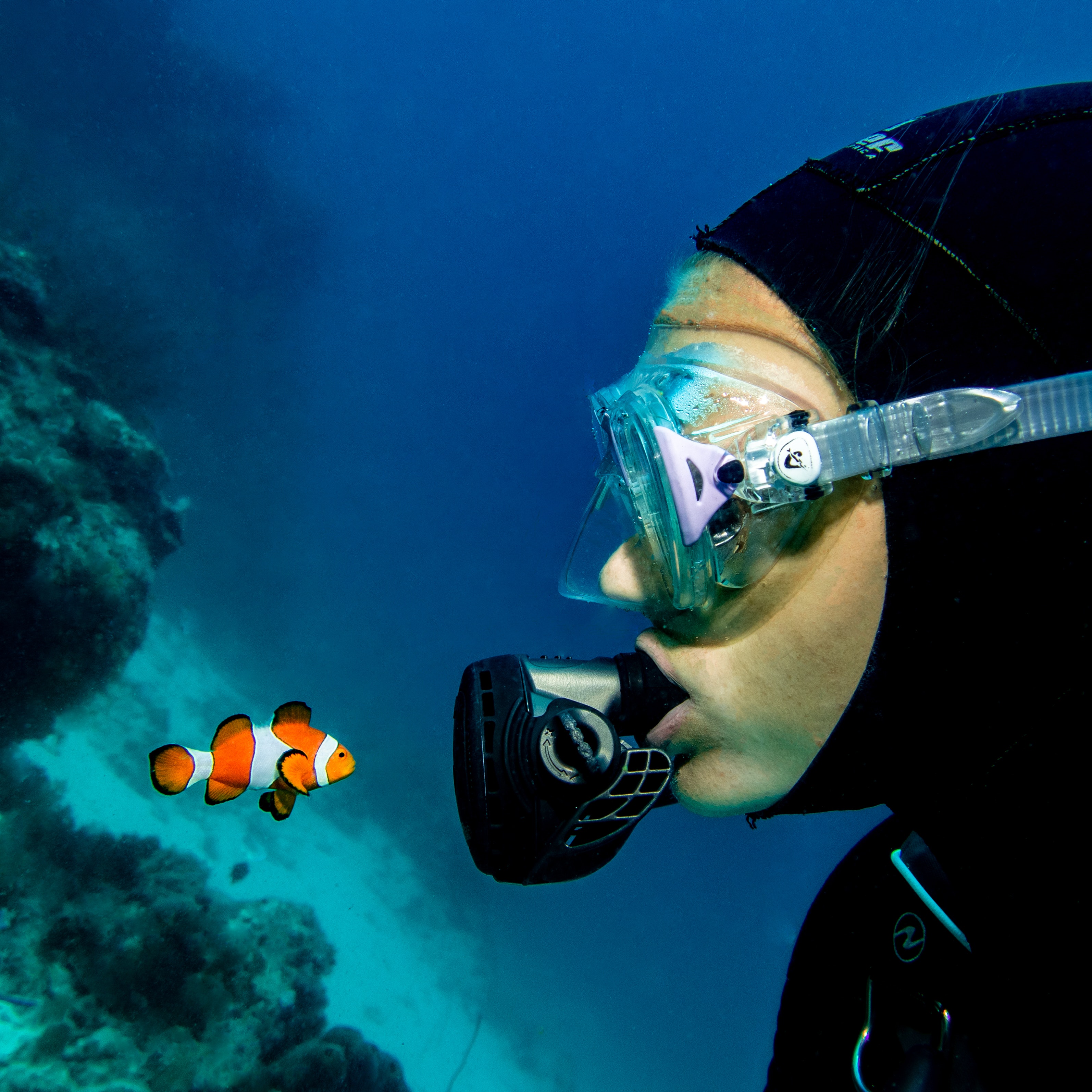I Love Scuba
✨It is an amazing activity✨

Scuba diving is a mode of underwater diving where the diver uses
a self-contained underwater breathing apparatus (scuba), which is
completely independent of surface supply, to breathe underwater. Scuba
divers carry their own source of breathing gas, usually compressed
air, allowing them greater independence and freedom of movement
than surface-supplied divers, and longer underwater endurance
than breath-hold divers. Although the use of compressed air is common, a
mixture of air and oxygen called enriched air or nitrox has become
popular due to its benefit of reduced nitrogen intake during long or
repetitive dives.
Scuba diving may be done recreationally or professionally in a number of
applications, including scientific, military and public safety roles,
but most commercial diving uses surface-supplied diving equipment when
this is practicable.
Also, a 2011 study conducted by Johns Hopkins University found,
“veterans with spinal cord injuries who underwent a four-day scuba-
diving certification saw significant improvement in muscle movement,
increased sensitivity to light touch and pinprick on the legs, and large
reductions in post-traumatic stress disorder (PTSD) symptoms.” In
addition to the scientific findings, we’ve heard firsthand from hundreds
of disabled divers telling us they feel less anxiety, fewer headaches,
and a feeling of freedom that was previously missing from their life.
We’ve seen vets with PTSD change from emotionally shut down and
compartmentalized to open and engaged. Underwater, divers experience
weightlessness, and for those suffering from severe injuries, this can
make a huge difference - reducing swelling, taking pressure off joints,
and reducing back and neck pain. Our divers tell us being underwater
helps them filter everything out and just breathe.